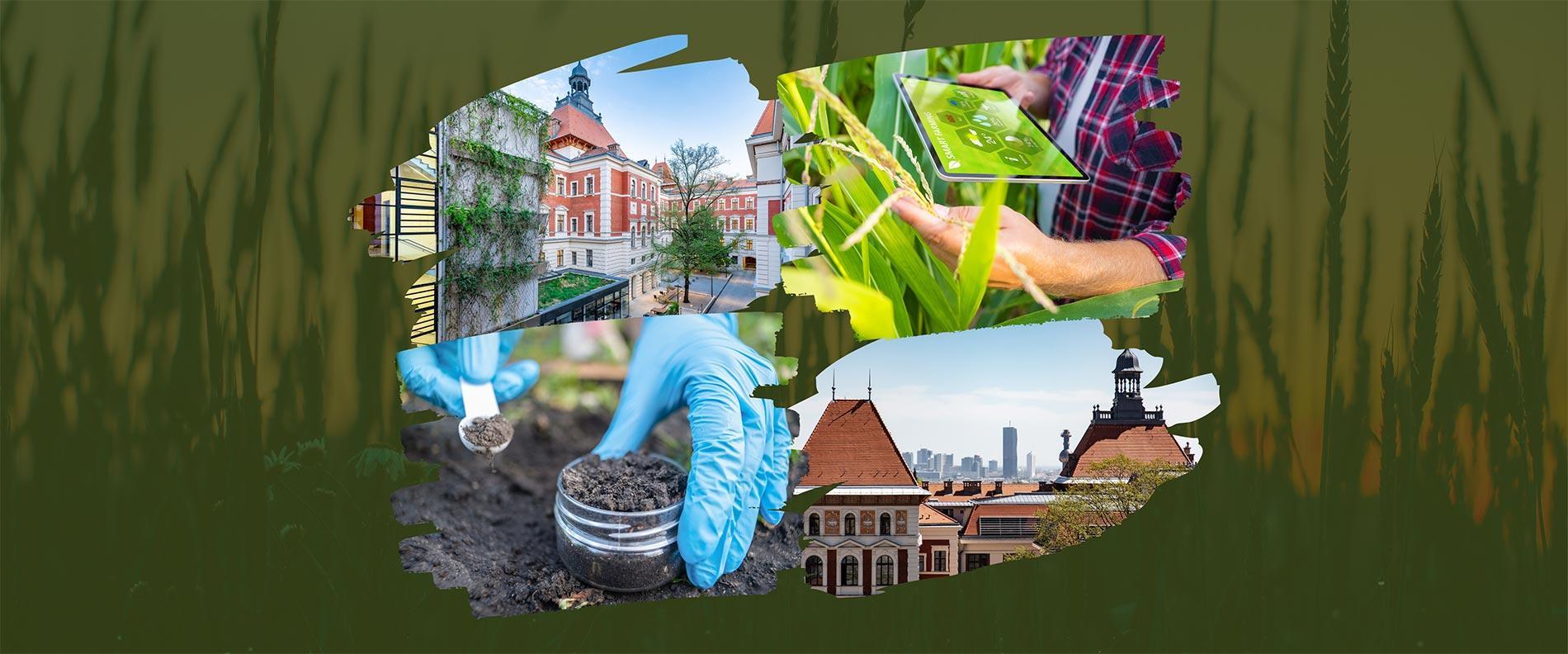What once started as a small school for agriculture and forestry in 1872 has become a top life sciences university in Europe. The BOKU (Vienna’s University of Natural Resources and Life Sciences) leads the way in climate change and farming technology research and science. Its scientists have developed solutions for sustainable food production and high tech eco cultivation. The BOKU celebrated its 150th anniversary this year.
Alexandra Dubsky, 21 November 2022
The renowned University of Natural Resources and Life Sciences (BOKU) offers more than 40 under- and post-graduate study programs in the fields of organic food technology, agriculture, geotechnic, chemistry, zoology and waste management, among others. The institution has moreover gained an impressive reputation for its pioneer work in the areas of creating solutions for a sustainable food supply and for fighting climate change.
The BOKU is located at two campuses in Vienna at Türkenschanze and Muthgasse and in Lower Austria in Tulln. It has 15 departments and 11 000 enrolled students.
Professor Sophie Zechmeister-Boltenstern from the Institute of Soil Research at the BOKU is dedicated to finding solutions to battle climate change and its consequences. “If we succeed in enriching organic matter in the soil in a sustainable manner, carbon dioxide from the air can be stored in the long term. That’s how soil fertility can be improved and climate stabilization promoted at the same time,” she explains.
The possibility of reaching climate protection by building up humus came into focus for the first time as a result of the “4 per 1000” initiative at the UN Climate Conference in Paris in 2015. “The idea is that once we increase the carbon content in our soils by 4 per 1000 annually, it would be possible to equalize the annual man-made carbon dioxide emissions,” says Zechmeister-Boltenstern. She compares carbon dioxide to the windows of a car that is parked in the sun: “when the windows are up, the car heats up quickly”.
The EU and its member states are funding soil research in the European Joint Program EJP SOIL with 80 million euros. Five well-networked Austrian soil institutions (BOKU, AGES, Environment Agency Austria, BFW, BAW) are working as partners for Austria in connection with the association BIO science, with about 100 Austrian scientists and experts involved.
AGES is an Austrian research institute (Österreichische Agentur für Gesundheit und Ernährungssicherheit GmbH) run by the Republic of Austria. Its research focus is food safety, food security, pathogens in humans, animals and plants, counterfeit drugs and climate protection. The BFW (Bundesforschungszentrum für Wald) is an Austrian, multidisciplinary training and research center owned and operated by the Republic of Austria. Its focus is forestry and the environment. BAW (Bundesamt für Wasserwirtschaft) is Austria’s Federal Agency for Water dealing with water ecology, fisheries and lake research, water management and water quality and hydraulic engineering.
According to the EJP SOIL’s research, the expected increase in world population will require food production to increase by 70 percent by 2050, with production of cereals needing to increase by 50 percent. At the same time our ability to increase food production will be restricted because nearly two-thirds of agricultural land has been degraded over the past 50 years and every year 12 million hectares of agricultural land are lost due to soil degradation. The project will hence explore new strategies for sustainable farming that can support and enhance soil health, particularly increasing the efficiency of chemical fertilizers and supporting soil biodiversity.
“I believe that this project will fundamentally change agriculture,” says Zechmeister-Boltenstern confidently. “If we manage to fill just a third of the current knowledge gaps in the first five years, we can provide farmers with new methods they can use for their soil management – from cultivation to measures to make soil more climate-resilient to financial considerations, which will bring economic benefits while protecting the environment and climate.”
The project has come up with a set of recommendations to achieve these goals which include measures that helps store more carbon dioxide. Reducing tillage is one such measure which would also support crop resilience against drought and enables the soil to better store water. By keeping the soil green during winter more carbon dioxide can be stored therein.
The climate status report was prepared on behalf of the Climate and Energy Fund and by the Climate Change Centre Austria (CCCA) in cooperation with the Central Institute for Meteorology and Geodynamics (ZAMG) and the BOKU. Climate Protection Minister Leonore Gewessler from the Green Party underscored the importance of this report which “clearly shows us the consequences for our regions, but also provides important data so that we can take precise measures. By investing in climate protection, we are boosting our economy and ensuring a good and climate-friendly future for the people of Austria.”
Gewessler joined the BOKU anniversary celebrations on 14 October with a video message: “BOKU’s approach of developing solutions on a topic-related basis and addressing societal challenges speaks for lived interdisciplinarity. This approach enables an extremely valuable capacity in the field of sustainable resources. The thematic diversity underlines the importance of BOKU for Austria as a science location.”
President of BOKU Eva Schulev-Steindl is proud of BOKU´s success. “The founding of BOKU has proved to be fruitful. Not only has it provided many students with a well-founded, practice-oriented and at the same time research-based education. The institution has also produced a large number of prominent graduates. In these 150 years, it has provided numerous researchers with good and stimulating working conditions – as evidenced by awards such as ERC grants (grants given by the European Research Council) or top positions in the rankings of so-called “highly cited researchers”. This sentiment is echoed by Austria’s Minister of Agriculture Norbert Totschnig, who praised the BOKU’s innovation in science and research: “If we look back on the history of BOKU, then it has always been one step ahead and has dedicated itself to a critical discourse between all three pillars of sustainability – the economy, ecology and the social.”







